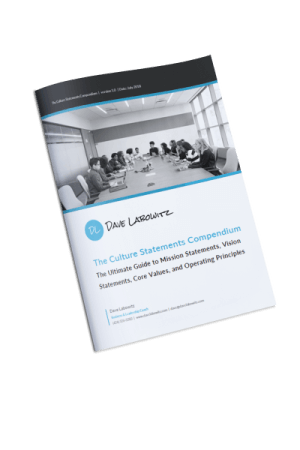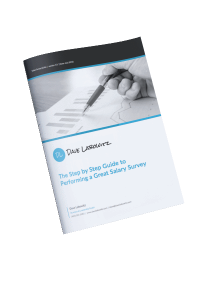“It is better to first get the right people on the bus, the wrong people off the bus, and the right people in the right seats, and then figure out where to drive.”
-Jim Collins, “Good to Great: Why Some Companies Make the Leap… And Others Don’t”
Generally accepted business wisdom agrees that the single biggest predictor of business success or failure is the quality of your team. But what makes a team high-quality? Should you hire for talent? Hire for attitude? Cultural fit? Skills and experience? Mindset?
Historically, the most common answer to this question is, “Hire for talent.” Unfortunately, this belief is at best unevolved and at worst horribly mistaken. The idea of hiring for talent is so ingrained in our business culture that, in some industries, team members are simply referred to as “talent.” There are even executive roles called “Chief Talent Officer!” It’s no wonder so many businesses fail due to having a lack of the right people on the bus.
It’s far more important to hire for attitude and mindset than it is to hire for talent.
Talent isn’t worth much and isn’t always a good thing
Talent is nothing more than natural aptitude. If you’re talented, you’ll pick things up faster than others. However, this is relevant, almost entirely, when picking up a new skill. That’s why talent shines in children. Children are relatively new to just about everything! So up until high-school or so, the talented kids are the ones who stand out. Talent is like having a head start in a race:

You’re already way out in front at the beginning of the race if you have outstanding talent. This can be alluring, especially if you’re hiring for an entry-level position. If a candidate strikes you as talented, it will seem their possibilities are endless! Less talented candidates will pale in comparison. Here’s the first problem, though. Your highly talented new hire may come up to speed in three months while it may take your other hires as much as six. But after six months, talent doesn’t differentiate them nearly as much.
To make matters worse, there are some other issues that can crop up with highly talented team members.
1. They can get bored
If you’re not extremely careful to continue challenging your highly talented new hire during their ramp up they’ll get bored quickly. Since things come easier to them they won’t be expending as much effort as others and won’t be as engaged. They may end up putting things on cruise control and waiting for everyone else to catch up.
2. They can get arrogant
Egos love being the best at things, and talented people get used to being the best at things. Once they get used to being the best it’s very easy for them to let it start creeping into their self-identity. Once they start taking their great results for granted it’s difficult to not get at least a little cocky.
3. They can get lazy
When you’re used to blowing all your competition out of the water it’s easy to get lazy. If a highly talented new hire is in a department with a team full of more averagely talented people, they’re probably smashing the goals and KPIs. Why continue working hard when they get great results easily?
It requires an internal motivational strategy rather than an external one in order to want to continue working hard in this situation. Internal motivation is about evaluating yourself by your prior performance: do better than you did yesterday. External motivation is about evaluating yourself vs external cues like other people’s performance or scores like KPIs: be better than them and hit your numbers. Internal motivation is a more evolved and long-lasting motivational strategy but is unfortunately far less common than external motivation.
Why you should hire for attitude
As opposed to talent, a good attitude helps you during the entire race, not just at the beginning. People with less talent are forced to rely on their attitude in order to succeed. Strategies like positivity, hard work, and creativity spin out of this need. It may take a new hire with less talent longer to come up to speed, but if they have the right attitude, they’ll start catching up:

Keep in mind that careers are marathons, not sprints. As skills and expertise grow towards mastery over a longer timeline, the differences between high-performers shrink. Think about the Olympics for a moment. Even long races are often only separated by seconds or less. Do you remember Michael Phelps winning a gold medal by a single hundredth of a second? As the level of skill of the field rises, attitude, hard work, and technique are what create the best results. When’s the last time you saw an Olympic race seeded by talent? By the time people are good at their jobs talent has ceased to matter.
In the meantime, if your highly talented pack-leader falls prey to any of the side effects of being talented like boredom, arrogance, or laziness, it’s only a matter of time until team members with good attitudes catch up and pass them:

As you look at this picture, keep in mind that a hard-working attitude is a habit and functions as a muscle: The more you do it, the stronger you get at it. In this case, the pack of runners with less talent has had to work hard the entire race. They’re in the habit of working hard and have developed the stamina to work hard for extended periods of time.
In contrast, the more talented runner has let his hard work muscle atrophy. Not only is his attitude out of shape, but he’s also now dealing with the emotional repercussions of trailing in a race he was sure he would win. Depending on his mindset, this could have a wide-ranging and long-term impact.
Growth mindset makes talent irrelevant
As described in Carol Dweck’s masterful Ted Talk and her book “Mindset,” people with a growth mindset believe they can evolve any aspect of themselves through experience. To someone with a growth mindset, things like talent and intelligence aren’t set in stone. If they fail at something they consider it a learning experience, recognizing that they’re now smarter than they were before.
In contrast, someone with a fixed mindset believes they have a set amount of talent and intelligence. If they fail at something, they believe they just weren’t talented or smart enough. Rather than learning everything they can and trying again, they’re more likely to fall into self-criticism and give up.
Dweck’s ground-breaking work proved that people with growth mindsets indeed perform at far higher levels than those with fixed mindsets. They also tend to be more resilient and less self-critical. This means that, based on Dweck’s work, talent is irrelevant and an extremely poor hiring criterion. If you can determine that a candidate has a growth mindset, their talent at the moment of hire doesn’t matter because it will grow over time, anyway. Sure, their ramp period might be a bit slower, but in the long run, it won’t matter. If talent isn’t fixed, hiring based on talent would be like hiring someone because they happened to be wearing a sky blue shirt rather than a navy blue shirt. They might wear a navy shirt the next day.
If possible, hire for attitude, growth mindset, and talent
I’m not saying that talent always becomes a detriment later on. A talented person who also has a great attitude and a growth mindset will almost inevitably continue to outperform less talented folks because they’ll have what it takes to retain their lead. However, it’s rarer than you think to find all these traits in one candidate. If you find a candidate who has them all, absolutely hire them on the spot. But if you can’t find such a candidate and have to choose, hire for attitude and mindset rather than talent. And definitely avoid hiring the toxic combination of talent and fixed mindset; those are the hires that will blow up when things get difficult.





